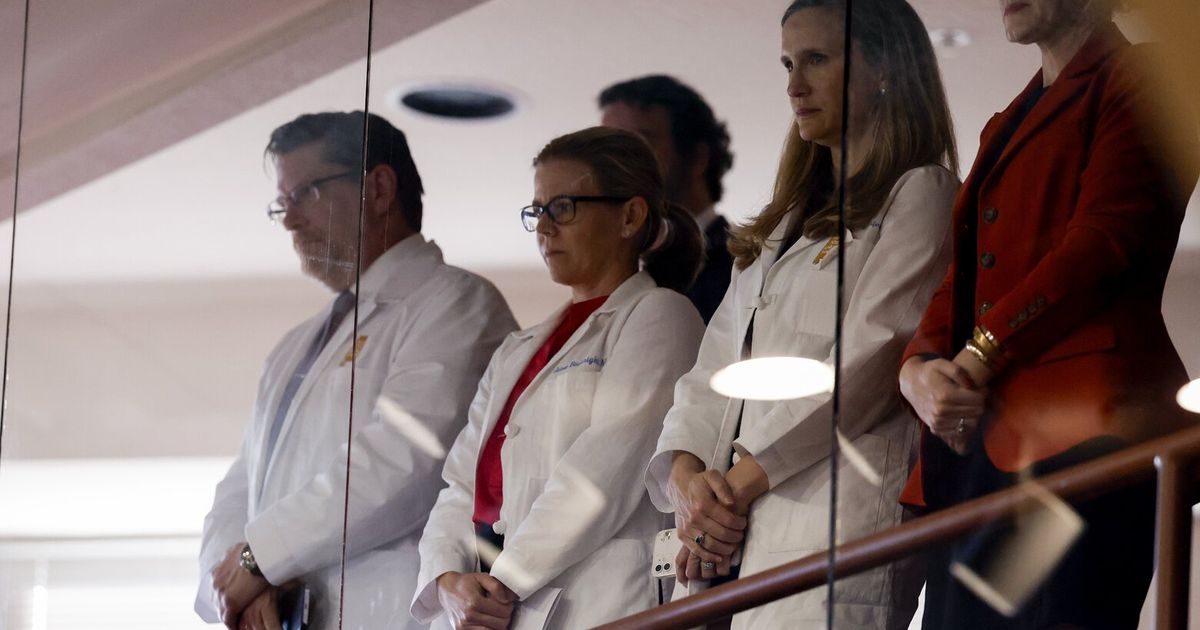Alabama Governor Kay Ivey has signed a bill into law aimed at protecting in vitro fertilization (IVF) patients and providers from legal liability. This comes after a state Supreme Court ruling created uncertainty for the future of fertility care in the state. However, the new law does not address the issue of personhood, which was at the center of the previous ruling. Experts believe that further work is needed to fully protect fertility services in Alabama.
The fertility clinic involved in the case that prompted the ruling has halted services, stating that the new legislation does not provide sufficient legal protection for them to resume care. The state court had ruled that frozen embryos are considered human beings, and those who destroy them can be held liable for wrongful death. This ruling sparked a national debate on reproductive health freedom and access to IVF.
As a result of the ruling and the pause in services by some IVF providers, families were forced to seek treatment out of state, leading to concerns about increased costs for fertility services. The recently passed legislation aims to provide civil and criminal immunity to providers and patients for the destruction or damage to embryos, and it applies retroactively. The law also provides criminal immunity to manufacturers of goods used in the IVF process or the transport of stored embryos.
Some experts have expressed concerns that while the legislation protects providers from liability related to the destruction of embryos, it may also shield them from standard medical malpractice claims. State Senator Larry Stutts, who voted against the measure, criticized the bill, arguing that it primarily protects providers and suppliers, limiting the recourse available to mothers involved in IVF.
Governor Ivey acknowledged that the new law is a temporary fix following the court ruling and stated that more work will be done to address IVF protections. IVF patients have expressed cautious relief, with some clinics planning to resume services. Patients who had their treatments halted expressed gratitude to lawmakers for working quickly to reopen clinics. However, they also emphasized the need for further action to ensure that similar situations do not arise in the future.
Alabama Fertility, one of the clinics that paused IVF treatments, plans to restart services this week. The University of Alabama at Birmingham, the state's largest healthcare system, also announced the resumption of IVF services. However, the clinic at the center of the Supreme Court case, The Center for Reproductive Medicine at Mobile Infirmary, will not yet resume services, citing a need for legal clarification on the extent of immunity provided by the new law.
The American Society for Reproductive Medicine has warned that without legislation addressing the legal status of fertilized eggs, IVF providers remain vulnerable. The Supreme Court ruling was based on two lawsuits filed by parents who had frozen embryos destroyed at a fertility clinic. The ruling was later reversed on appeal. A fourth lawsuit has since been filed, and groups representing defendants in the original lawsuits have requested a rehearing of the case.
In conclusion, while the new legislation aims to protect IVF patients and providers, there are still concerns and ongoing legal challenges. The court's decision may have broader implications for Alabama families, as courts could potentially use the ruling to treat embryos as people in other areas of the law.
Alabama governor signs IVF protection bill into law, but experts say it will take more work to protect fertility services
Alabama Gov. Kay Ivey signed a bill into law aimed at protecting in vitro fertilization patients and providers from legal liability late Wednesday, with some clinics poised to lift a hold on certain IVF services as early as this week after an unprecedente





